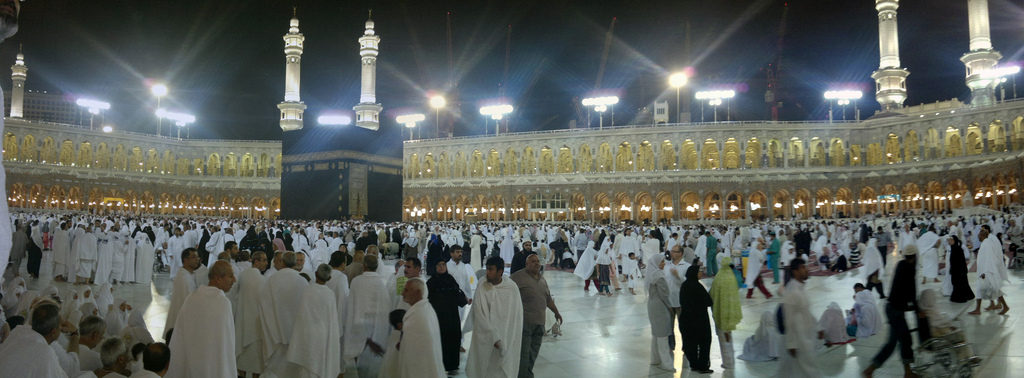What is Zina:
Zina (زِنَاء) or zin’a (زِنًى or زِنًا) is an Islamic law concerning unlawful sexual activities or relations between Muslims men and women who are not married to one another through a Nikah (Islamic marriage).
Zina includes extramarital affair and premarital sex, such as adultery (consensual sexual relations outside marriage), fornication (consensual sexual intercourse between two unmarried persons(men vs men or women vs women)), and homosexuality (consensual sexual relations between same-sex partners).
In the four schools of Sunni fiqh (Islamic jurisprudence), and the two schools of Shia fiqh, the term zina is a sin of sexual intercourse or unlawful activity that is not allowed by Sharia in Islam as a hudud crime (class of Islamic punishments that are fixed for certain crimes that are considered to be “claims of God”).
To prove an act of zina, a Qazi (religious judge) in a sharia court relies on an unmarried woman’s pregnancy, the confession in the Name of Allah, or four witnesses to the actual act of penetration. The last two types of prosecutions are uncommon; most prosecuted cases of zina in the history of Islam have been pregnant unmarried women.
Zina in Islam:
In some schools of Islamic law, a pregnant woman accused of zina who denies sex was consensual must prove she was raped with four eyewitnesses testifying before the court. This has led to many cases where rape victims have been punished for zina.
Zina is a Crime:
Zina is a crime in Islam and the person who committed to this activity will be in hell at the day of Judgment. In Islam the person who do this act is called Zani. Zina is one of the most prominent symbol of Judgment day. In previous day of Islam there is a very hard punishment of Zina. While today modern World Zina is spreading in Muslims like poison.
It was narrated from Abu Hurayrah that the Prophet Muhammad (peace and blessings of Allah be upon him) said:
“Allah has decreed for every son of Adam his share of zina, which he will inevitably commit. The zina of the eyes is looking, the zina of the tongue is speaking, one may wish and desire, and the private parts confirm that or deny it.” [Narrated by al-Bukhaari, 5889; Muslim, 2657]
First o all we need to know that, It is not permissible or allow for the Muslim to long for the things that lead to zina, such as kissing, being alone, touching and looking, for all these things are haraam in Islam and lead to the greater evil which is zina in Islam.
Allah says (interpretation of the meaning):
“And come not near to unlawful sex. Verily, it is a Faahishah (i.e. anything that transgresses its limits: a great sin, and an evil way that leads one to hell unless Allah Forgives him).” [al-Isra’ 17:32]
Looking at that which is forbidden is one of the arrows of the Shaitaan, which leads a person to doom, even if he/she did not do it intentionally at first. Allah says (interpretation of the meaning):
“Tell the believing men to lower their gaze (from looking at forbidden things), and protect their private parts (from illegal sexual acts). That is purer for them. Verily, Allaah is All‑Aware of what they do.And tell the believing women to lower their gaze (from looking at forbidden things), and protect their private parts (from illegal sexual acts).” [al-Noor 24:30-31]
Can you Think about how Allah connects the issue of lowering the gaze with the issue of protecting your private parts (guarding one’s chastity) in these verses, and how lowering the gaze is mentioned many times, before protecting the private parts, because the eye direct relation with heart.
Shaykh ‘Abd al-‘Azeez ibn Baaz (may Allaah have mercy on him) said:
In these two verses, Allah commands/order the believing men and women to lower their gaze and guard their chastity, which is because of the serious reason/nature of zina in Islam and leads to great corruption/mistake among the Muslims. Letting one’s gaze wander freely is one of the reason of sickness in the heart and the reason of immoral actions, whereas lowering the gaze means, to keeping oneself safe from that. Hence Allah says (interpretation of the meaning):
“Tell the believing men to lower their gaze (from looking at forbidden things), and protect their private parts (from illegal sexual acts). That is purer for them. Verily, Allah is All‑Aware of what they do.” [al-Noor 24:30]
Lowering one’s gaze and guarding one’s chastity is purer for the believer in this world and in the Hereafter, whereas letting one’s gaze wander freely and not guarding one’s chastity are among the greatest causes of doom and punishment in this world and in the Hereafter. We ask Allah to keep us safe and sound.
Allah says: He is All-Aware of what people do, and you cannot hidden something from him. This is a warning to the Muslims (believer) against doing that which Allah has forbidden and turning away from that which Allah has prescribed for him, and it is a reminder to him that Allah sees him/her and aware/knows all that he/she does, whether it is good or otherwise(bad). As Allah says (interpretation of the meaning):
“Allah knows the fraud of the eyes, and all that the breasts conceal.” [Ghaafir 40:19]
End Quote From al-Tabarruj wa Khataruhu.
The Muslim has to fear his Lord in secret and in public, and keep away from that which Allah has forbidden of being alone with a member of the opposite sex, looking, shaking hands, kissing and other haraam actions which lead to the immoral action of zina.
Punishment For Zina:
The sinner should not be deceived into thinking that he will not commit zina and that he will stop at these haraam actions and not go that far, for the Shaytaan will never leave him alone. There is no hadd punishment for these haraam actions, such as kissing etc., because the hadd punishment is only for intercourse (zina), but the judge may punish him with a ta’zeer punishment to deter him and others like him from committing these sins.
Types of Zina:
Ta’zeer punishments may be prescribed for every sin for which there is no hadd punishment or kafaarah, Well there is three kinds of Zina(sins):
- Those sins for which there is a hadd punishment but no kafaarah is required.
- Second for which kafaarah is required but there is no hadd punishment.
- Third for which there is neither a hadd punishment nor kafaarah.
Explanation of Three types of Sins:
- The first type of sin includes such crimes as stealing, drinking alcohol, zina and slander.
- The second sin includes having intercourse/sex during the day in Ramadaan, or when in ihraam.
- The third type of sin includes having intercourse/zina with a slave girl who is owned jointly with someone else, or kissing a na-mahram woman and being alone with her, entering the public baths without a waist wrapper, eating haraam meat, blood and pork.
[I’laam al-Muwaqqa’een, 2/77 ]
Adultery in Islam:
The men or women who has committed any of these sins/actions has to ask forgiveness from Allah, for whoever ask forgiveness from Allah, He will accept his repentance, and the one who repents is like one who did not sin.
One of the greatest means of apology for such sins is offering the five time daily Salah regularly and on particular Adhan time.
The Prophet (peace and blessings of Allah be upon him) said:
“The five daily prayers, and from one Jummah to the next, and from one Ramadan to the next, expiates for the sins that come in between, so long as you avoid major sins.” [Narrated by Muslim, 1/209]
Kafaarah for Zina:
Ibn Abbaas (R.A) said: There is no major sin if one asks for forgiveness, and there is no minor sin if one persists in repeating it.
So if one person wants to repent from having made the great sin of Zina he should remember this thing.
Do not despair, for Allah the Most Exalted and Glorified said in the Quran:
“Say: Oh my servants who have transgressed against their souls! Despair not of the mercy of Allah, for Allah forgives all sins; for He is oft-forgiving, most merciful.” [Surah 39, Verse 53]




very well article.